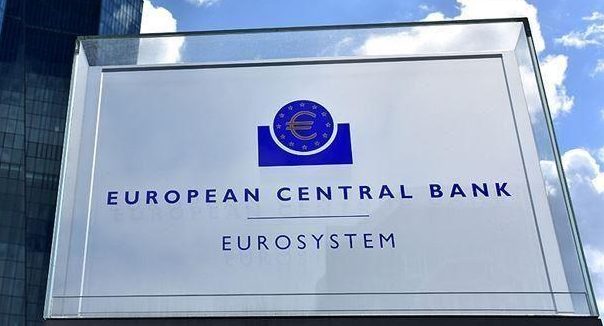Tracker holders benefit but savers to lose out as ECB cuts rates again
Tracker mortgage holders will see their monthly repayments fall after the European Central Bank delivered its fourth rate cut since the summer.
But savers have been warned that they are set to lose out as more deposit takers are likely to reduce the interest they pay for money saved in bank accounts.
European Central Bank (ECB) governors decided to cut the lending rates it charges banks by 0.25 percentage points.
The latest move piles pressure on lenders here to reduce new fixed and variable rates, but it will directly benefit tracker customers.
Mortgage rates here continue to fall, according to the latest data from the Central Bank.
This latest ECB rate cut will be the fourth reduction since it increased rates 10 times up to September last year.
About 130,000 people on tracker mortgages here will benefit from the latest cut.
Each reduction in the ECB’s refinancing rate reduces repayments by €13 a month for every €100,000 owed on a tracker.
Lower ECB rates should make mortgages for new buyers cheaper.
However, economists have warned that this is not all good news as lower lending costs are one of the factors pushing up property prices.
Property prices are overvalued by up to 10pc, according to the Economic and Social Research Institute (ESRI) in its latest Quarterly Economic Commentary.
A fall in the cost of mortgages for first time-buyers taking out new mortgages will mean more people competing for a very limited supply of housing.
House prices are rising at a rate of 10pc a year, with population growth and wage rises also pushing up values.
However, switchers and about 80,000 people coming to the end of a fixed-rate mortgage in the this year will be boosted by lower mortgage rates.
Broker Michael Dowling said he expects fixed rates to fall to 3pc for three and five-year fixed options, which will bring reductions of €85 to €125 a month on the average €300,000 mortgage for new or switcher mortgage customers.
The ECB move means the main refinancing rate falls to 3.15pc. This is the rate trackers are priced off.
It means the typical tracker rate will fall to around 4.4pc.
Another 0.25 points reduction means tracker mortgage repayments have fallen by €52 a month on every €100,000 since June.
For the average tracker mortgage holder with a margin of 1.1 percentage points over the ECB rate, the rate drops in 2024 translate to a monthly repayment reduction of €74 for every €100,000 owed over a 20-year term, said Martina Hennessy, CEO of Doddl.ie.
“For a €250,000 mortgage, this adds up to a significant annual saving of €2,230, or nearly €186 per month.”
She said that looking ahead, it is anticipated that the ECB will continue reducing rates into early 2025, which is great news for tracker mortgage holders.
However, economist Simon Barry warned savers to expect deposit rates to fall on the back of the latest ECB rate reduction.
He said: “Irish depositors can take steps to avoid the impact of lower rates and boost their deposit returns by shopping around for better-paying overnight accounts and or by further rebalancing their savings toward term deposits.”
Term deposits, where money is locked away for a period, have only fallen slightly in the past few months. This is despite four ECB rate cuts.
Mr Barry said that ECB data for October shows that the average rate on new Irish term deposits has eased only marginally, from a peak of 2.77pc in July to 2.64pc in October.
“For now, the headline message for savers is that recent ECB rate cuts have not fully passed through to Irish deposit rates.”
And he warned that further ECB rate reductions are expected next year, something that will put further pressure on savings rates.
Online banks Revolut and N26 have both recently cut their rates, the latter for the second time.
Irish households currently have over €160bn resting on deposit. But the majority of the money is still in accounts that pay little to no interest.
Source: Charlie Weston, Irish Independent, 12th December 2024

No responses yet